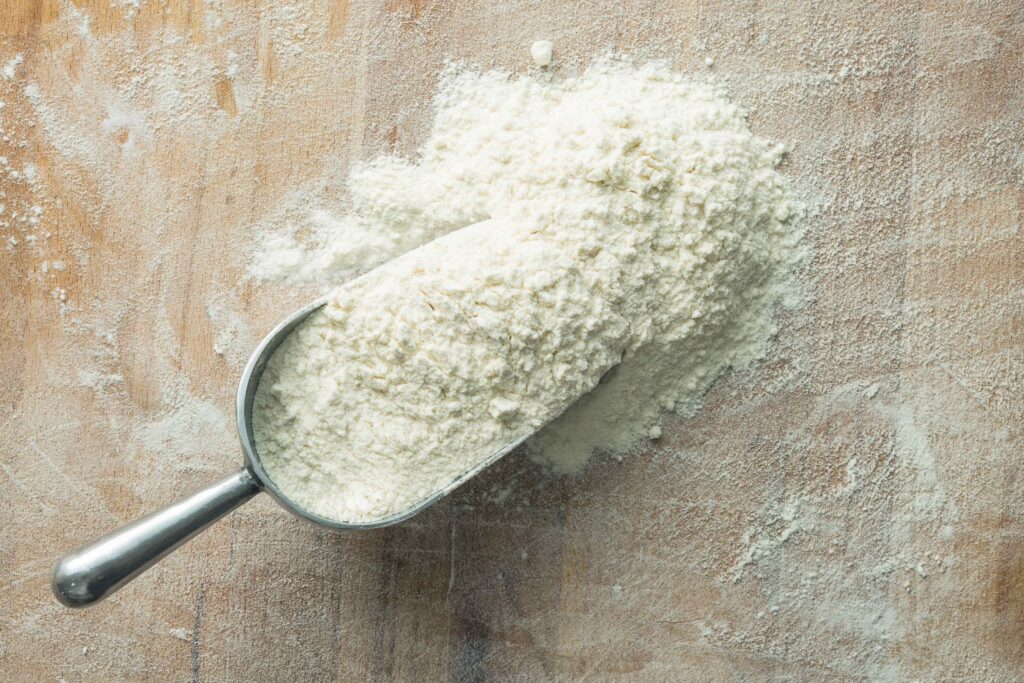
When it comes to the world of food production, precision and consistency are paramount. Even slight variations in ingredient quality or temperature can impact the final product’s taste, texture, and shelf life. One often-overlooked aspect of food manufacturing is industrial flour cooling, a critical step in ensuring the uniformity and excellence of bakery and other food products.
What is Flour cooling?
Industrial flour cooling is a process used in large-scale food production facilities, particularly in the baking industry, to lower the temperature of flour before it is used in dough mixing and other production processes. This cooling process is crucial for maintaining consistent flour quality and achieving the desired characteristics in the final baked products.
Understanding the Significance of Industrial Flour Cooling
- Consistency is King Consistency is the cornerstone of the food industry. Customers expect the same delicious taste and texture every time they purchase a product. Industrial flour cooling ensures that the flour’s temperature remains consistent, preventing fluctuations that could lead to inconsistencies in the final product. A well-cooled flour supply guarantees that every loaf of bread, cookie, or pastry meets the same high standards.
- Flour Quality Preservation Flour can be sensitive. It absorbs moisture from the environment, and if it’s too warm, it can create sticky, unworkable dough. An expertly designed cooling system preserves the flour’s quality by keeping it at an ideal temperature, preventing moisture absorption, and ensuring the dough maintains its proper hydration levels
- Dough Handling Efficiency In large-scale food production, efficiency is key. The right flour cooling solution ensures that the dough is easy to work with, from mixing to shaping. Cooler flour means more manageable dough, reducing production delays and improving overall efficiency.
- Extended Shelf Life Freshness is a selling point in the food industry, and industrial flour cooling contributes to extending the shelf life of baked goods. Well-cooled flour minimizes the risk of staling and mold growth, resulting in products that stay fresher for longer, reducing waste and ensuring customer satisfaction.
- Energy Savings and Sustainability Becoming experts in industrial flour cooling means not only maintaining product quality but also considering the environment. Energy-efficient cooling systems reduce operational costs and minimize the environmental footprint of your production process, aligning with sustainable practices and regulatory requirements.
- Adherence to Quality Standards Strict quality control is essential in the food industry. Cooling flour to precise temperature levels is a fundamental part of quality assurance. When you’re an expert in industrial flour cooling solutions, you’re better equipped to meet and exceed industry standards and regulations.

How industrial flour cooling works:
- Temperature Control: Flour is typically stored in silos or bulk storage containers, and its temperature can fluctuate due to factors like ambient temperature and humidity. Industrial flour cooling systems are designed to regulate and lower the temperature of the stored flour to a specific range, usually within a controlled environment.
- Cooling Methods: Several methods can be employed for industrial flour cooling, including:
- Air Cooling: In this method, cool, dry air is blown through or around the flour to reduce its temperature gradually. Air cooling systems can be equipped with temperature and humidity controls to achieve precise cooling results.
- Direct Refrigeration: Some industrial facilities use refrigeration systems to directly cool the flour. Cold refrigerant is circulated through coils or pipes that come into contact with the flour, transferring heat away and cooling the flour.
- Indirect Cooling: In indirect cooling, a heat exchanger is used to transfer heat from the flour to a cooling medium, such as chilled water or refrigerant. This method is often used when direct contact with refrigerants is not desired.
- Moisture Control: In addition to temperature control, some industrial flour cooling systems also manage moisture levels in the flour. Controlling moisture is essential to prevent condensation and maintain the desired flour quality.
- Conveyor Systems: Industrial flour cooling systems may be integrated with conveyor systems that transport the flour from storage to the cooling unit and then to the mixing or processing area. This ensures a continuous flow of properly cooled flour to the production line.
- Quality Control: Industrial facilities often monitor and control various parameters during the flour cooling process, including temperature, humidity, and flow rates. This allows for tight quality control and ensures that the flour meets specific standards and requirements.
- Energy Efficiency: Energy-efficient design and operation of industrial flour cooling systems are important considerations to minimize operational costs and environmental impact. Recycling and reusing energy where possible can help reduce overall energy consumption.
Industrial flour cooling is particularly important in large-scale bakery operations where consistency in flour temperature and quality is critical for producing uniform and high-quality baked goods. By controlling the temperature and moisture content of flour, industrial facilities can ensure that the dough and final products meet desired specifications, resulting in efficient and reliable food production processes.
At Gashor we are committed to offer specific complementary equipment for the improvement of industrial processes. Our cutting-edge flour cooling solutions ensure that every particle of flour retains its freshness and quality, maintaining the ideal temperature.
Do you want more information? https://www.gashor.com/en/contact/
